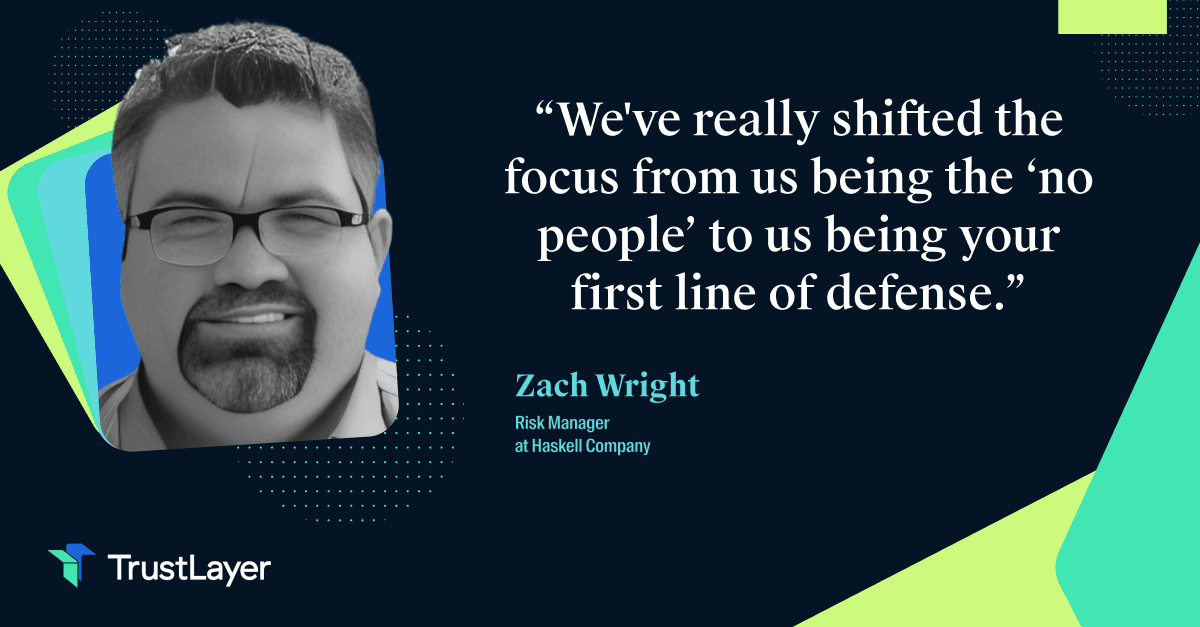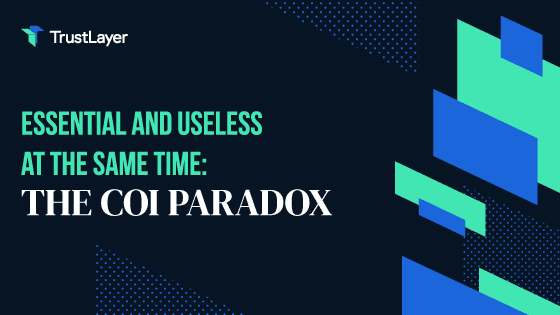Understanding COI Compliance
In today's fast-paced business environment, maintaining compliance with regulations and standards is more critical than ever. Among the myriad of compliance areas, Certificates of Insurance (COIs) stand out as crucial documents proving that a business carries adequate insurance coverage. For contractors or vendors, ensuring proper documentation is vital to mitigating risks and maintaining professionalism.
The Importance of Compliance in Business
Compliance establishes trust between a business and its clients, vendors, and employees. According to a recent study by the Compliance Institute, companies that maintain strong compliance protocols reduce their risk of legal ramifications by up to 40%. This statistic underscores the necessity of a well-organized compliance process.
Moreover, non-compliance can lead to significant financial repercussions. The Ponemon Institute reports that data breaches due to non-compliance can cost companies an average of $3.92 million. It is evident that a robust compliance management system, particularly regarding COIs, is indispensable for safeguarding a business’s financial health and reputation. In addition to financial losses, non-compliance can damage a company's reputation, leading to lost business opportunities and diminished customer trust. The ripple effects of non-compliance can linger long after the initial incident, making it imperative for businesses to prioritize their compliance strategies.
Defining COI Compliance
COI compliance involves ensuring that all contractors and suppliers provide valid certificates of insurance and confirming that they adhere to the required insurance policies mandated by the hiring company. These certificates validate coverage and protect against potential liabilities during contractual engagements. Understanding the nuances of COI compliance helps organizations mitigate risks while fortifying their operational integrity.
Furthermore, managing COI compliance can be complex, often requiring dedicated resources to track and verify documentation. Companies may implement software solutions to streamline the collection and verification of COIs, ensuring that all necessary documents are up-to-date and compliant with industry standards. This proactive approach not only simplifies the compliance process but also enhances the overall efficiency of vendor management. By investing in technology and training, organizations can foster a culture of compliance that permeates every level of the business, ultimately leading to better risk management and improved operational resilience.
The Role of Software in Compliance Management
As transactions and partnerships increase, manually managing COIs can become overwhelming. This is where technology steps in, offering streamlined solutions to enhance compliance management practices.
Traditional Methods vs. Software Solutions
Traditionally, COI management relied heavily on spreadsheets, emails, and paper documents. While these methods may be familiar, they often lead to errors, miscommunications, and dated information. According to a survey by the Corporate Compliance Consortium, 60% of compliance professionals report struggling to keep up with vendor documentation using traditional means, leading to unnecessary delays in business operations.
In contrast, compliance software simplifies this process by automating document tracking, reminders, and storage. Companies can instantaneously verify the validity of COIs and automate notifications for renewals, significantly reducing administrative burdens and enhancing efficiency. Integrating software solutions mitigates human error risks and allows compliance teams to focus on more strategic initiatives rather than getting bogged down in routine paperwork.
Key Features of Compliance Software
When choosing compliance software, several features are vital for effective COI management:
- Document Tracking: Automated systems can monitor the status of COIs in real-time, ensuring that all required documents are current and easily accessible.
- Alerts and Notifications: Users receive timely reminders for renewals or expired documents, which helps prevent compliance lapses.
- Centralized Repository: A central location for all COIs enables quick access and enhances collaboration among team members.
- Comprehensive Reporting: Software can generate detailed reports that help executives gain insights into compliance risks and vendor performances.
Moreover, the best compliance software solutions often have user-friendly dashboards visually representing compliance status across various departments. This feature not only aids in quick decision-making but also fosters accountability within teams, as everyone can see their contributions to overall compliance efforts. Additionally, many software solutions offer customizable workflows, allowing organizations to tailor the compliance process to their specific needs and industry regulations, ensuring they remain agile in changing compliance landscapes.
Another significant advantage of utilizing compliance software is the ability to integrate with other business systems, such as procurement and risk management platforms. This interconnectedness ensures compliance is not viewed as a standalone function but as an integral part of the overall business strategy. By leveraging data from various sources, organizations can develop a more holistic view of their compliance landscape, enabling them to address potential issues before they escalate into serious problems proactively.
Benefits of Using COI Compliance Software
Implementing COI compliance software presents numerous advantages that can transform a company’s approach to compliance management.
Streamlining Compliance Processes
Automation of compliance tasks reduces the time and effort spent on manual processes. For instance, organizations that use compliance software have reported a decrease of up to 50% in the time needed to manage COIs. This streamlining allows compliance officers to focus on strategic initiatives rather than chasing paperwork.
Additionally, integrated platforms can lead to smoother onboarding of vendors and contractors, creating a more agile business environment. Such efficiency can enhance relationships with partners, making it easier for companies to scale operations and take on new projects. Moreover, quickly and accurately assessing vendor compliance can significantly reduce the risk of engaging with non-compliant entities, thereby protecting the organization from potential legal and financial repercussions.
Enhancing Accuracy and Efficiency
Accuracy is paramount in compliance management. An Institute of Internal Auditors study found that nearly 70% of compliance failures are attributed to human error. Compliance software mitigates this risk by automating data entry and verification processes, ensuring that companies have accurate information at their fingertips. This improves operational effectiveness and fosters trust in a company’s compliance practices.
Efficiency translates into cost savings. Companies that leverage COI compliance software often see a reduction in administrative costs by approximately 30%. This financial impact illustrates the profound benefits of adopting modern technology over outdated methods. Furthermore, the real-time reporting capabilities of such software empower organizations to make informed decisions quickly, allowing them to adapt to regulatory changes and market demands with agility. By harnessing data analytics, businesses can also identify trends and patterns in compliance issues, enabling proactive measures to enhance their compliance posture.
Choosing the Right COI Compliance Software
Selecting the appropriate COI compliance software is crucial in enhancing compliance management. With various options available on the market, key factors must be considered before making a decision.
Factors to Consider
When evaluating different software solutions, organizations should consider the following:
- Scalability: Can the software grow with the business and accommodate increasing demands?
- User-Friendliness: Is the interface intuitive and accessible to all team members?
- Integration Capabilities: Does the software integrate seamlessly with existing business systems?
- Customer Support: What level of ongoing support is available post-implementation?
Evaluating Software Providers
Once the critical factors are identified, it’s essential to research and evaluate potential software providers. It's crucial to look for vendors with a proven track record, positive customer reviews, and robust customer support.
Furthermore, consider requesting demonstrations or trials of the software. Understanding how a solution operates in practice can provide insights not captured in marketing materials. TrustLayer stands out as a preferred solution as it has garnered positive feedback for helping businesses easily integrate compliance management.
In addition to these considerations, organizations should assess the software's reporting capabilities. A robust reporting feature allows businesses to generate detailed compliance reports, which can be invaluable for audits and regulatory reviews. This functionality not only aids in maintaining transparency but also enhances the organization's ability to identify potential compliance gaps and address them proactively.
Moreover, exploring how the software handles data security and privacy is beneficial. Given the sensitive nature of compliance-related information, ensuring that the software adheres to industry standards for data protection is paramount. Depending on your industry, look for solutions that offer encryption, regular security updates, and compliance with regulations such as GDPR or HIPAA. This focus on security will protect your organization and instill confidence among stakeholders and clients regarding your commitment to safeguarding their information.
Implementing COI Compliance Software
Successfully integrating COI compliance software into an organization involves strategic planning and execution. A straightforward implementation roadmap can lead to more effective results.
Steps for Successful Implementation
The implementation process can be broken down into several key steps:
- Assessment: Evaluate current processes to identify pain points in COI management.
- Selection: Choose a software solution that meets the business’s specific needs.
- Configuration: Tailor the software settings to align with the organization’s compliance objectives.
- Testing: Before a full rollout, conduct testing with a small user group to troubleshoot potential issues.
- Launch: Deploy the software company-wide, communicating changes and expectations to all staff.
Training and Support for Users
Implementing new software without adequate training can lead to underutilization and frustration among users. Providing comprehensive training sessions ensures that all team members understand how to navigate the system effectively.
Additionally, ongoing support is critical. Whether through helpdesk services, training materials, or user forums, companies should ensure that assistance is readily available, allowing users to maximize the software’s potential. Leading providers often offer continuous education opportunities, fostering a culture of compliance within teams.
Moreover, creating a feedback loop where users can share their experiences and suggest improvements is essential. This enhances the software's usability and empowers employees by making them feel valued in the implementation process. Regular check-ins and surveys can help gauge user satisfaction and identify areas for further training or software adjustments, ensuring the system evolves alongside the organization’s needs.
Furthermore, integrating COI compliance software with existing systems can streamline workflows and reduce redundancy. For instance, linking the compliance software with HR and project management tools can automate data sharing, making it easier to track conflicts of interest in real-time. This interconnected approach saves time and enhances compliance reporting accuracy, allowing organizations to maintain a proactive stance on regulatory requirements.
Ready to revolutionize your COI compliance management? TrustLayer is here to elevate your risk management strategies into the modern age. Our best-in-class COI tracker is designed for today's dynamic risk managers, providing a seamless solution for tracking, verifying, and managing vendor documents. Say goodbye to the cumbersome, manual processes of document collection and verification. Embrace the efficiency of TrustLayer's automated system, which hundreds of thousands of companies trust. Don't let outdated methods hold you back—join the forward-thinkers who are building the next practices in risk management. Set up a time to talk with our team and discover how TrustLayer can transform your compliance workflow, saving you time and money with every step.








